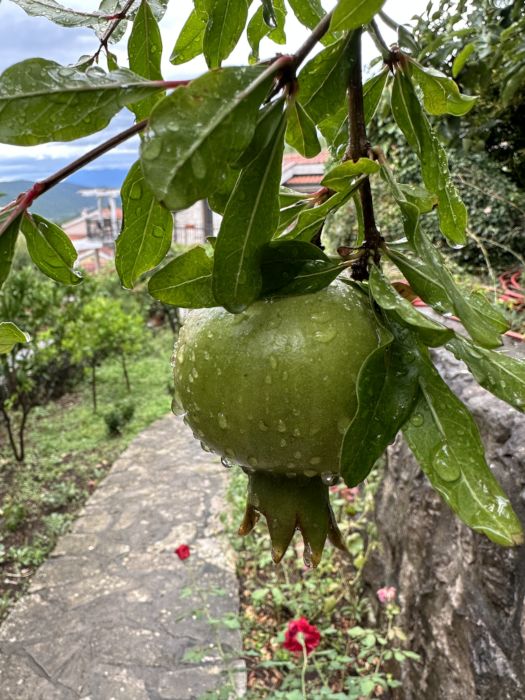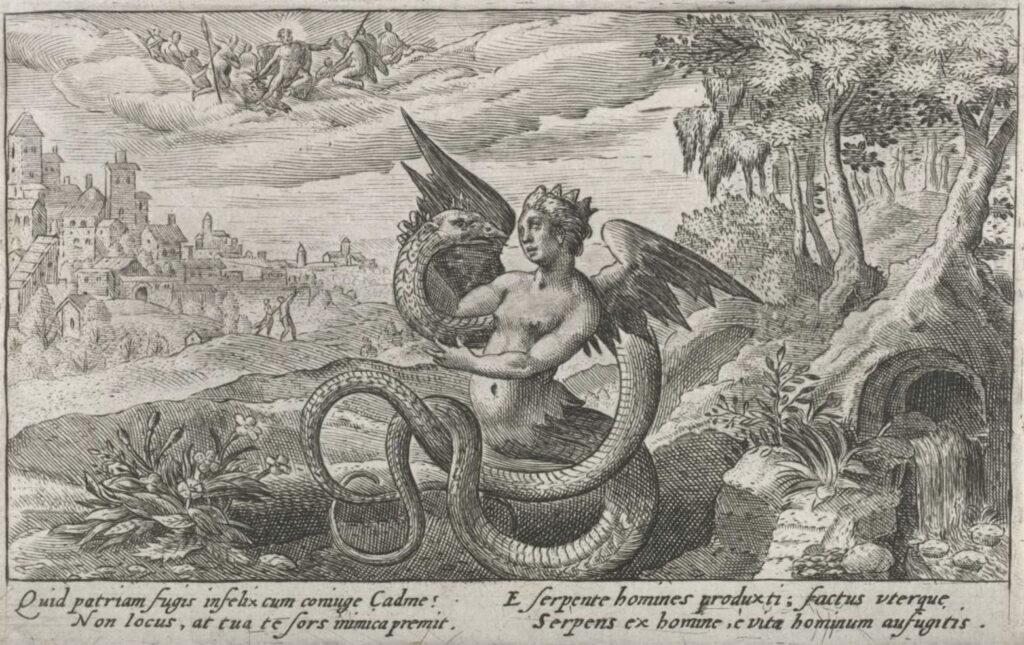History of Budva begins with the story about Cadmus’ foundation of the city. It was one of the most favored topics of Greek, Hellenistic, and Roman writers: Pindar, Sophocles, Euripides, Lycophron, and Ovid. The oldest mention was in the Euripides tragedy Bakhe from 408 BC.
Cadmus – The Greek Hero and Founder of Budva
Legend has it that Budva’s origin is entwined with the mythical saga of Cadmus and Harmonia, an ancient tale of love, tragedy, and destiny echoing through time. Cadmus, a Phoenician prince and one of Greece’s greatest heroes preceding Heracles, played a pivotal role in the city’s founding.
Known for his boldness and as the slayer of monsters, Cadmus played an important part in Greek history and culture. For example, he was credited with introducing the original Phoenician alphabet to the Greeks. He was also the founder of the legendary Boeotian city of Thebes, which he established after killing the dragon, son of Ares. Only later he will find out how this killing marked his destiny in tragedy and suffering.
Legend of the Foundation of Budva
For us, the most important role of Cadmus is the one in regards to the ancient town of Budva. According to many Greek writers and philosophers, he was the founder of the city, then known as Bouthoe.
Despite his heroic exploits, Cadmus’s life was marked by tragedy and turmoil. Although apparently he had a life of luxury and power, his family faced misfortunes, and civil unrest shook his kingdom.
He fled Thebes, his homeland, seeking solace and redemption among the Enheleians, ancient inhabitants of Budva’s lands. It is said that he arrived in the region, along with his wife Harmonia, daughter of Electra, on a bullock cart.
Upon their arrival, the Enheleians hailed Cadmus as their king. Together, Cadmus and Harmonia led successful battles against neighboring Illyrians. They united the two peoples and achieved numerous victories.
The Curse of Cadmus and Harmonia
However, the glory days were over when his army unsuccessfully tried to conquer Apollo’s temple in Delphi.
Cadmus learned that his fate took a tragic turn when he incurred the wrath of Ares, the god of war, by slaying his sacred dragon-son in Thebe. It was this act that brought upon Cadmus and Harmonia a curse that would forever alter their destinies.
When he realized this, Cadmus bitterly remarked that if gods are so in love with the life of a reptile, he also wishes to become one. And that very moment marked the beginning of his transformation into a black snake with blue markings. Harmonia begged the gods to join her husband, and the gods granted her wish.

Transformed into serpents, they sought refuge in the lush Mediterranean gardens of Budva, full of aromatic pomegranate and roses. There, they remain entwined in eternal embrace to this day.
Historical Echoes in the Legend
While the legend of Cadmus may be mythical, the history of Budva reflects the region’s deep connections to ancient Greek culture. Archaeological evidence, including Budva’s old town walls dating from the 5th-3rd century BC, hints at Greek influence and the existence of ancient trade routes like the Via Cadmia, which linked Mediterranean civilizations.
Regardless of the myth’s factual accuracy, it serves as a testament to the interconnectedness of the Mediterranean world, the cradle of civilization, and the timeless allure of Budva, where history, legend, and the beauty of sun and sea converge in harmony.




